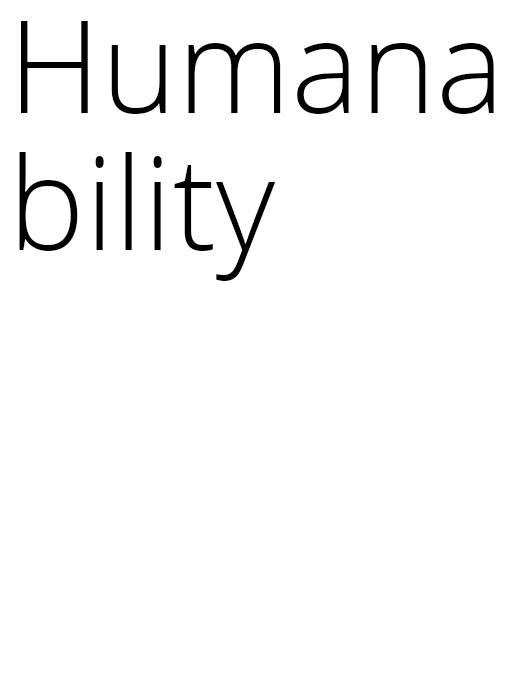Until recently, when we talked about sustainability we focused on production methods, circular economy, the climate and respecting Mother Earth. Less often we talked about ourselves, we as humans. But what about our ‘humanability’? Do we, as our planet, have a point of no return? Are we at the end of our flexible minds and do we need robots to take us further? Are we still in control of our own lives or not? And how does this make us feel?
Technology is progressing fast. Faster than most of us can comprehend. Personal data are being stored; facial recognition is being used and developed for security or marketing reasons; nudging is being used as a tool to influence consumers or citizens. Sometimes we know our data are used and sometimes we don’t. All these new and emerging technologies like artificial intelligence, the Internet of Things, robotics, crypto currency and so on are presented as something that brings us ‘good’. And yet mis use is close by and potentially very dangerous.
Most people across the world have no idea of the vulnerability of our privacy and what it can lead to. Or they simply don’t care. (To get an idea of where manipulation of data can lead to, watch the Netflix documentary The Great Hack) [1].
Technology that extracts and stores our personal data but at the same time facilitates our pressured lives. How can we say no to that!
As humans, however, we need to feel safe, loved, connected. We need to be able to trust one another. How does that work in a tech-driven society in which the technical solutions are too complex for most people to understand? In which privacy statements take 76 pages to be explained? In which you can’t always choose conventional options anymore (think online banking or online insurance)?
At a time of efficiency driven economics, individuality and self-interest, collectivity and collective responsibility [2], altruism and kindness towards nature ánd ourselves is gaining foothold.
We hope to recover our humanity by scaling down, by reconnecting to neighbours, by sharing a kitchen garden with friends and family, by growing our own crops and providing our own solar energy. Reconnecting to ourselves and each other and having an impact on climate change at the same time. Although on a larger scale this could help, it will not be the solution for the 9 billion people populating the earth in 2050. It is time to seriously and consistently think about the humanability of our changing society [3].
Technology will have an ever growing influence and impact on our lifestyles and the leaders of these tech companies have a huge responsibility. They need to make trustworthy and transparent decisions, for the greater good. And if they will not or cannot, governments need to step in and offer a framework in which tech companies and citizens need to operate. A framework based on collectivity, sustainability and humanability [4].
Constance Gerris
September 27, 2019
[1] The GreatHack: the film that goes behind the scenes of the Facebook data scandal | https://www.theguardian.com/uk-news/2019/jul/20/the-great-hack-cambridge-analytica-scandal-facebook-netflix
[2] Het Financiële Dagblad, zaterdag 10 augustus 2019 p.22. Interview met Nicolette van Exel: Bedrijven gaan afgerekend worden op hun sociale missie
[3] Bescherm de kwetsbare mens tegen de digitalisering | https://www.nrc.nl/nieuws/2018/12/11/bescherm-de-kwetsbare-mens-tegendigitalisering-a3060160
[4] Het Financiële Dagblad, zaterdag 14 september 2019 p.14. Interview met Klaus Hommels: We vechten met bokshandschoenen tegen iemand met een kalasjnikov

